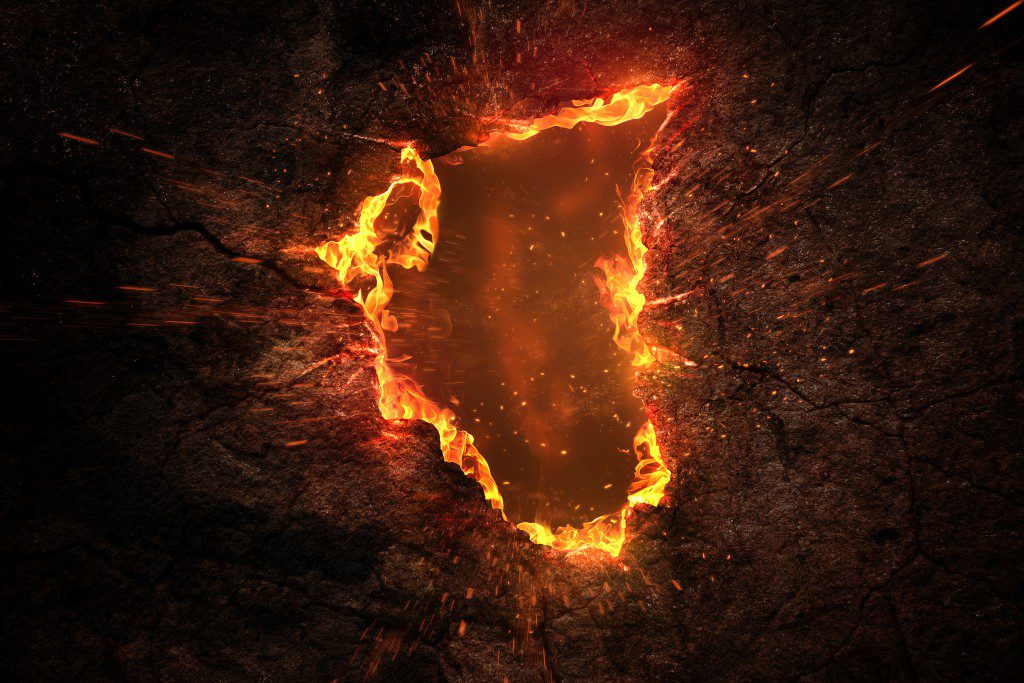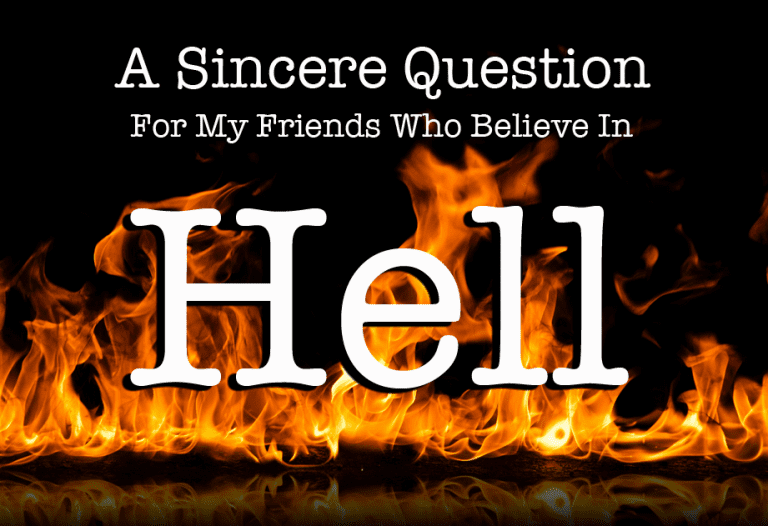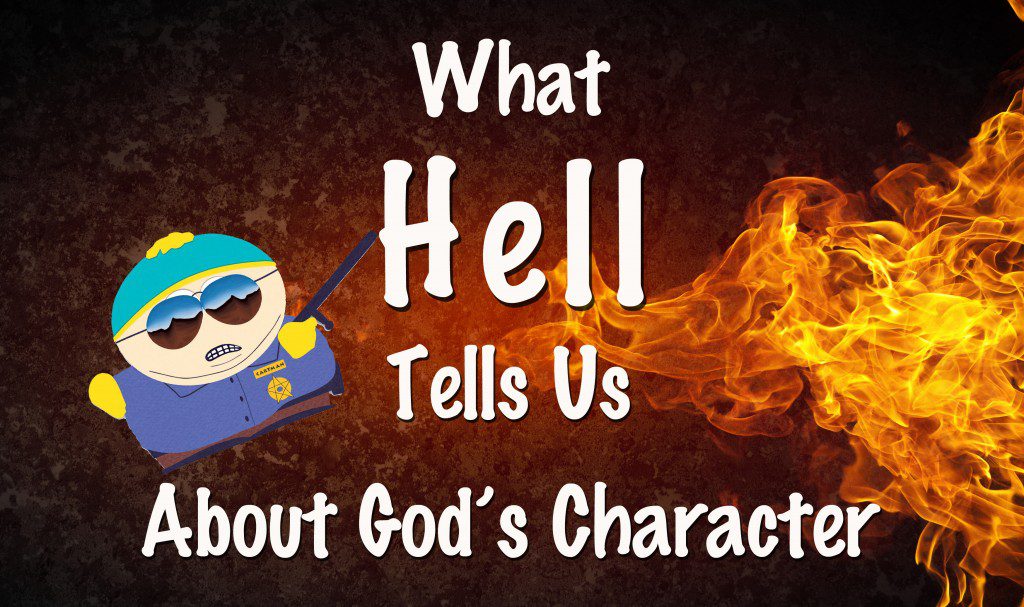Growing up Evangelical, we were often warned that some issues were “heaven or hell” issues. While even the most rigid among us recognized that some issues were open to differences of opinion or personal conviction, there are some moral issues where Jesus draws such a hard line that it becomes a “heaven or hell” issue.
Meaning, unless Jesus was just totally bluffing, there are some things that aren’t open to negotiation.
There are some things, according to Jesus, that will either hinder or absolutely prohibit one from entering his Kingdom– because he said so. The flip side of entering his Kingdom is hell– whatever one believes that may or may not be. However one interprets the concept of hell (I have a long series on that here), Jesus does warn of a divine punishment (whether punitive or restorative, permanent or temporary) that will fall upon those who choose to not embrace the principles of his Kingdom.
It’s hard to get around that reality for anyone who believes the words of Jesus are true and authoritative.
Growing up, hell-fire preachers were quick to identify things they thought were a “heaven or hell” issue– issues where being wrong sealed your fate in the afterlife. This most often had at least something to do with where you put your private parts. Or sometimes dancing, too– because we all know what happens if you get to dancing.
Even in the television series Way of the Master with Ray Comfort and Kirk Cameron, these street preachers would correctly tell people that the Bible even says that “all liars will have their place in the lake of fire,” meaning that simply being an unrepentant liar can be seen as a “heaven or hell” issue.
But here’s the funny thing: in all those years growing up Evangelical and hearing all about these heaven or hell issues, I never once heard people focus on the one time Jesus actually warned people about what he considered heaven or hell issues.
I can see why they ignored that critical passage– and I can see why they continue to do so today.
The passage in question is the parable of the sheep and the goats, found in Matthew 25. In this, Jesus says that at the final judgement he will divide the nations into two groups– one on his left, and one on his right. The group that gets into his Kingdom? Well, Jesus says it’s because their faith led them to do some very specific actions.
The group of people Jesus says he will send away into everlasting punishment? Well, that group of people also had faith and claimed to be Christians, but they earned themselves eternal punishment for not doing certain things they should have done.
What are these heaven or hell actions that Jesus listed? Well, it was liberal nonsense if you were to ask some:
Feed the hungry. Clothe the naked. Visit the prisoner. Welcome the stranger.
When Jesus condemns the group on one side of the room to eternal punishment, they quickly object and remind him that they are Christians. They say, “But we did X, Y, and Z, and did it all in the name of Jesus!”
Jesus of course, tells them “depart from me, I never knew you” and tells them that their refusal to care for the hungry, the needy, and to welcome the immigrant was a personal offense against him. He goes as far as identifying with the marginalized to an extreme– saying that when they refused to welcome the stranger, they were actually refusing to welcome the Son of God himself.
I find it equally sad and amusing that many Christians are so quick to quote Paul’s list of people who will not inherit the Kingdom of Heaven, but will do the most intense intellectual and hermeneutical gymnastics to avoid the clear and plain statement of Jesus in Matthew 25: those who did not care for the poor and needy, and who shut out the immigrant, will face divine punishment at the final judgement.
They claim we should overturn marriage equality in order to avoid the wrath of God.
They claim we should outlaw abortion in order to avoid the wrath of God.
But they never, ever, ever seem to say, “We should welcome refugees in order to avoid the wrath of God.”
With so many Christians celebrating and supporting President Trump’s new executive orders functionally barring the most needy refugees from the United States– refugees from areas we’ve bombed to oblivion, refugees who could surely die if we do not let them in, I grieve over the number of American Christians who joined the wrong side of what Jesus himself claimed was a “heaven or hell” issue.
If you are a Christian, if you believe that Jesus was the Son of God, that his words have authority, and that some issues of morality are actually “heaven or hell” issues, consider it fair warning that you *might* not want to ignore the direct warning Jesus gives about not welcoming in the stranger.
 Dr. Benjamin L. Corey is a public theologian and cultural anthropologist who is a two-time graduate of Gordon-Conwell Theological Seminary with graduate degrees in the fields of Theology and International Culture, and holds a doctorate in Intercultural Studies from Fuller Theological Seminary. He is also the author of the new book, Unafraid: Moving Beyond Fear-Based Faith, which is available wherever good books are sold. www.Unafraid-book.com.
Dr. Benjamin L. Corey is a public theologian and cultural anthropologist who is a two-time graduate of Gordon-Conwell Theological Seminary with graduate degrees in the fields of Theology and International Culture, and holds a doctorate in Intercultural Studies from Fuller Theological Seminary. He is also the author of the new book, Unafraid: Moving Beyond Fear-Based Faith, which is available wherever good books are sold. www.Unafraid-book.com.
Be sure to check out his new blog, right here, and follow on Facebook:



























